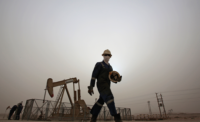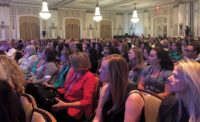Global Industry Firms Craft Responses to Ebola Crisis in Africa

With the deadly Ebola virus spreading in West Africa—and beyond—global industry firms are helping with relief efforts in the region and coping with impacts on projects. The outbreak, which the World Health Organization says has killed some 4,500 people in Guinea, Liberia and Sierra Leone this year, threatens growth in the region.
Earlier this month, Fluor Corp. won a $21-million task order under its U.S. Army Logistics Civil Augmentation Program (LOGCAP IV) contract to build temporary facilities in Monrovia, Liberia, for at least 3,000 military personnel who are arriving as part of the U.S. government's humanitarian mission.
Fluor competed against LOGCAP IV contractors KBR and DynCorp. for the award. The firm has been posting on its website about 100 construction job openings in Liberia, including skilled crafts, engineers and inspectors.
The military contingent is installing a 25-bed hospital in Monrovia and 17 Ebola treatment units. Set to open in mid-October, they were delayed until next month because of heavy rains and other logistical problems, says the U.S. armed forces newspaper Stars and Stripes.
Global owners and industry firms are taking precautions. U.S. oil giant firm Chevron, whose Liberian unit has a concession to drill offshore, said it is taking "a wait and see approach" before resuming operations. The German-Africa Business Association says no German company has been in West Africa since the outbreak, out of nearly 1,000 firms operating in Africa. "We have to be careful to avoid a situation in which Africa once again becomes known as a crisis continent where disease is widespread," it says.
A Louis Berger spokeswoman says the European Union has not halted its development bank-funded work in the region but she anticipates a delay in an upcoming project in Guinea.The firm is currently working on five projects in Guinea, as well as others in Senegal and Nigeria, currently not affected by the outbreak.
AMEC says it has suspended travel to the three affected countries and is withdrawing all staff from Liberia until the crisis is under control, says a spokeswoman.
With Chinese firms engaged in $15 billion worth of work in West Africa and thousands of imported Chinese workers at sites, Beijing has reasons to worry.
But China prefers to watch the situation instead of resorting to drastic measures like ordering the return of Chinese workers because this might hit the local economies, and make projects so much less viable, informed sources said.
It's a Catch-22 situation for Beijing. Once infected, moving back Chinese workers is a high risk venture, and not bringing them home can cause emotional upset at home. On the other hand, China does not want to lose laboriously built goodwill in Africa and hurt future business by pressing the panic button, sources said.
China also banks heavily on its "friend in need" image, and tries to distinguish itself from western countries.
“Chinese government will work to ensure sustainability of its economic cooperation in western Africa. On the other hand, it will make appropriate adjustment according to the situation,” Liu Hongwu, director of the Institute of African Studies, Zhejiang Normal University in eastern Chinese city of Hangzhou, told ENR.
Reports from Chinese embassies and companies in west Africa say that work on most projects has been affected, and Chinese workers are isolated from the local population in tightly controlled spaces inside project sites.
While no Chinese worker has proved to be a confirmed Ebola case, eight medical workers who went from China to Sierra Leone had to be quarantined in August.
Sources in Beijing said they expect payment delays for portions of construction that have been completed because local governments in the affected region are struggling with transport chaos, price hikes, food shortages and unbearable medical expenses.
“In short term, depending on their own situation, the small and medium private companies may reduce their local economic activities in the affected region,” Liu said, although he did not say how the large state-owned corporations would beheve.
Zhang Jun, a project manager of China International Water and Electric Corp. which is building the largest water and electric project in Guinea, told the official Xinhua news agency that his company lost no time in setting up an emergency and aid center after the Ebola outbreak.
Another firm, China Harbor Engineering Co., said it was sterilizing all offices and dorm rooms every week, and keeping close check on the flow of personnel and vehicles in and out of the company's compound.
Work on many Chinese projects in Sierra Leone have been suspended, and Chinese companies have cut off direct contact with outsiders as a precaution, officials said. In Liberia, China’s commercial counsellor Xiao Mingxiang complained of the challenges he was facing to protect 1,500 Chinese workers because of near breakdown in medical facilities.
China has provided $40 million towards relief efforts in the Ebola hit region. Dudley Thomas, Liberia's ambassador to China, told Reuters that there has been one donation of $100,000 from a large Chinese construction firm that has projects in his country, but few other contributions.
A major relief for Chinese construction firms is the World Health Organization’s declaration on Tuesday that Nigeria, an important magnet for foreign investments, is Ebola-free.





